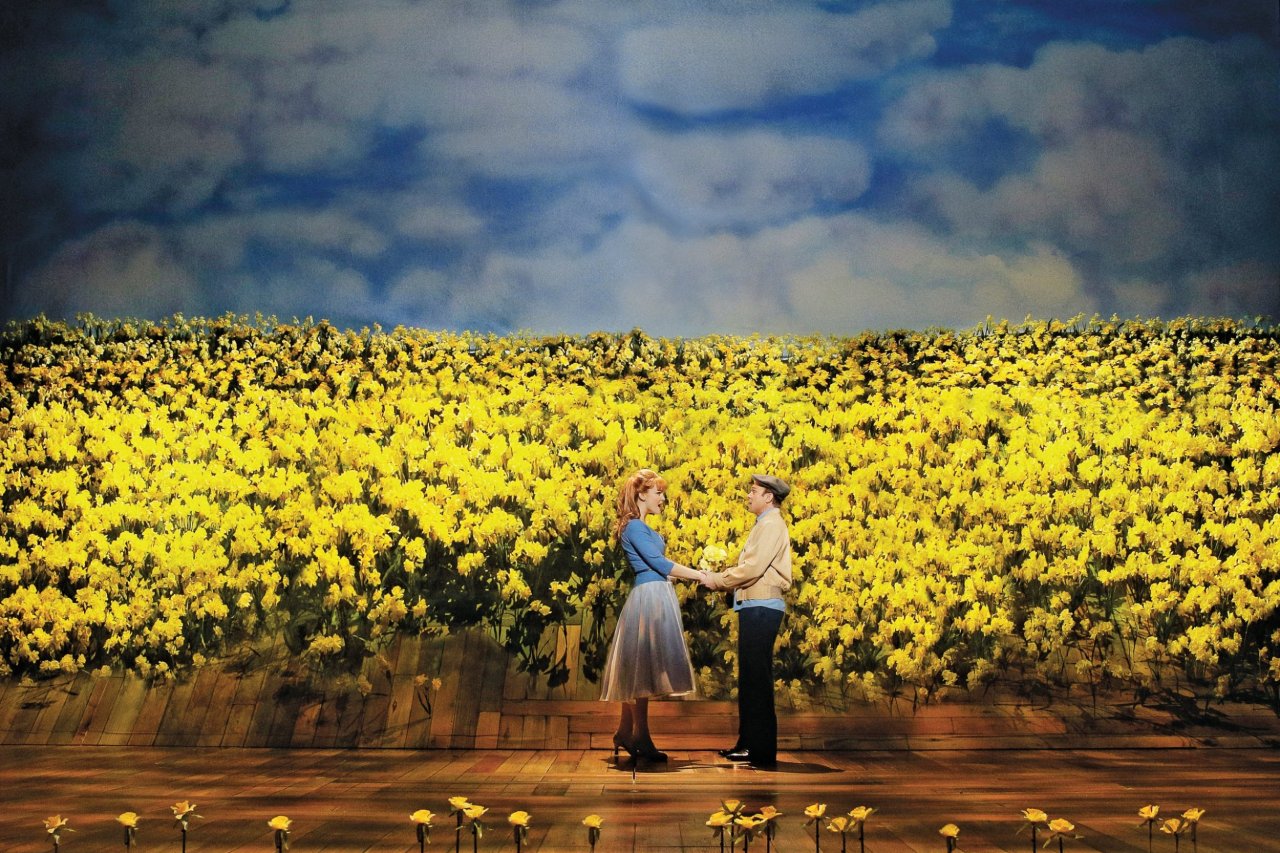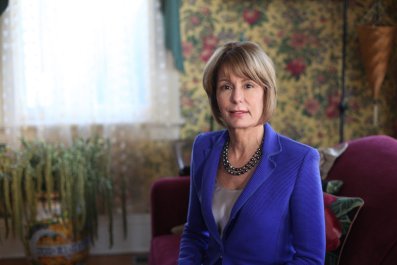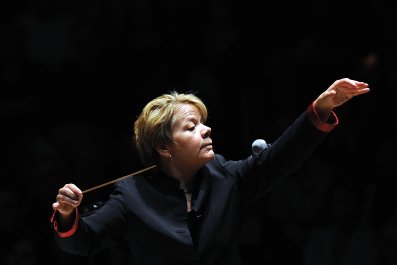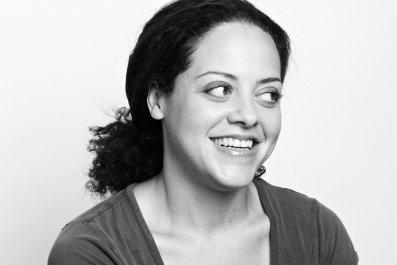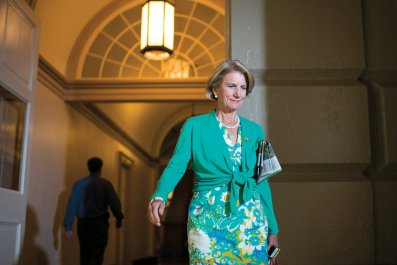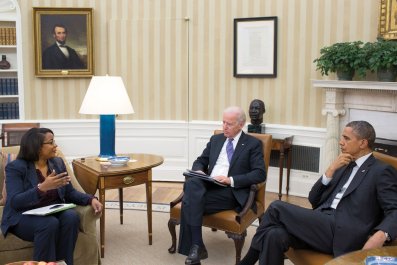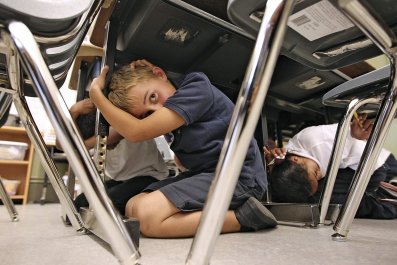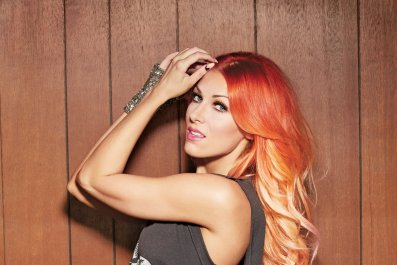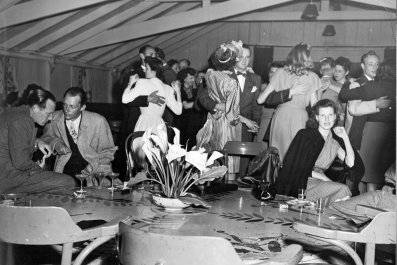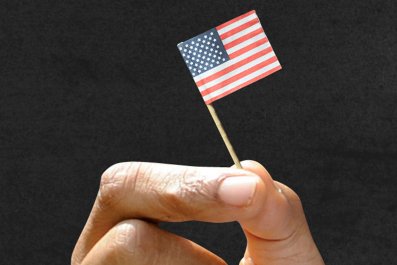Stephen King once summed up life neatly with the phrase "Get busy living, or get busy dying." John August appears to have taken his advice, making a very busy living writing about one man who knows exactly how he's going to die. "I'll be writing some version of Big Fish probably for the rest of my life," August, 43, tells Newsweek. "It's a good thing I love it, because I've spent a third of my life writing it."
It was 1998 when August fell in love with the novel Big Fish by Daniel Wallace. He brought it to Sony and wrote the screenplay. By 2003 the Tim Burton–helmed epic swam into theaters, starring Ewan McGregor and Albert Finney as Edward Bloom, a man made fearless with the knowledge of his eventual death—even though the audience is kept in the dark about the particulars. Bloom spins tales of giants and circus performers, woos the love of his life with acres of daffodils—and entirely disappoints his son Will, who chooses reality over a lifetime of story time.
Now, a decade later, the Blooms are coming to Broadway. Full of endless scene and costume changes, this tale was made for the theater. With The Producers powerhouse Susan Stroman directing, music and lyrics by Andrew Lippa, and a script written by August, Tony buzz won't be far behind. The fantastical narrative stars two-time Tony winner Norbert Leo Butz as Edward Bloom and Tony nominees Kate Baldwin as his wife, Josephine, and Bobby Steggert as Will. With an October 6 opening date at the Neil Simon Theatre looming, August—who has also penned the scripts for Go, Titan A.E., Corpse Bride and Frankenweenie and writes about screenwriting on his immensely popular blog—discusses the long road to making a musical about mortality, on-stage malfunctions, and the universal quandary of whether children and parents can ever really understand each other.
This interview has been condensed and edited.
You optioned Daniel Wallace's book so many years ago. What's it like being in such a long relationship with these characters?
I started writing this when I was 28, so I was very much the Will Bloom character. My father had passed away a few years before that, and I deliberately made the Will character my age and the Edward character my dad's age. Over 14 or 15 years of working on it, I got married to my husband and had a kid who's now 8 years old. I've become much more sympathetic to the parental side of things. The relationship between parents and children is a difficult one, because essentially it's like this big lottery that happens, and you're assigned to a family. There's this pressure to have this amazing relationship that's actually sometimes a difficult one.
You've said that when you first wrote the screenplay, you had an inkling it could be a musical. Why didn't the film go in that direction?
When you look at the stories Edward tells, they're larger than life. In fact, in the movie version I wrote one musical number, and I think if I had more courage, I would have tried to write a lot more songs. Edward Bloom is a storyteller, and it's a very natural transition from telling stories to singing songs. I loved the movie, but had a couple of frustrations. Because film is so literal, we had to use two actors to divide the role of Edward Bloom into a young version, played by Ewan McGregor, and the older version, played by Albert Finney. They're both terrific, but you do associate the role with two different people. On stage we could do it with one person.
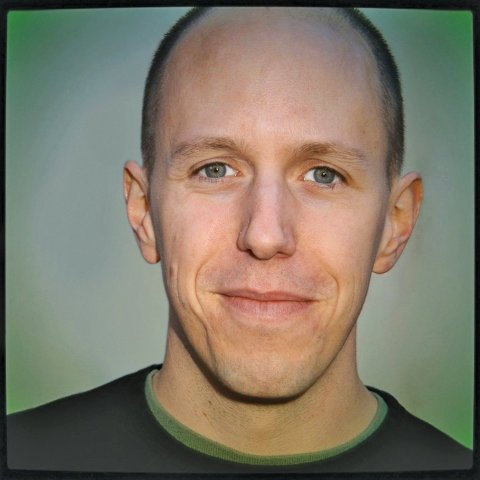
Was there discussion about the original cast coming to Broadway?
Ewan McGregor is fantastic, and he's a really great singer. We ultimately had to decide about who was the right person to do this eight times a week on Broadway. It had to be a Broadway person. It's an incredibly difficult role. It's like being a professional athlete. You look at what Norbert and Kate have to do as far as dancing and singing and doing it again and again. It's a skill set you don't find really outside of the theater.
What, to you, is the big idea behind Big Fish?
It's an intersection between two big themes, which are fatherhood—what does it mean to be a father, have a father, and become a father—and mortality, which is, to what degree can you shape the story of your life as you approach its end? Those are what Edward and Will wrestle with over the course of the story.
How do you think most people would live their lives differently if they knew, like Edward Bloom, how they were going to die?
In the movie he says, "Knowing your death is kind of a strange form of immortality. You know that nothing else can kill you, so you might as well be especially adventurous." That's pretty much the life he lives, taking big risks and big challenges. That's what he's trying to inspire and instill in his son, that sense of reaching beyond the expectations put on you.
What makes you most nervous about each show?
I'm nervous every night right when the curtain comes up, just because it's live and things can change. Last night we actually had to drop the curtain right after the first number, because oil had gotten on the floor. Yet I knew our cast would rally, and when we rose the curtain again, we went right back to young Will's line: "What the hell was that?" They got the laugh, and they kept going.
What's your favorite line in the play?
It's a line that originally was spoken, which is "My father is a stranger I know very well." There's that sense of there being a person who you can completely and fully predict and yet you fundamentally don't understand how their mind works. That was the relationship with my father, and that's often the relationship between parents and kids. You see the world differently, and yet that doesn't preclude you from enjoying the same things.
Any notes you've received that were particularly far-fetched?
The biggest notes that I've had to wrestle with are that the Will character can be really unlikable, because who couldn't love Edward Bloom? The work has been making sure we understand Will's perspective and not have the audience choose between either Will or Edward. In a weird way it's almost like a romantic comedy, where you really want the two leads to get together. You really hope they can push through and get through this and find a relationship.
I have to ask this: In the film version of Big Fish, Will's wife, Josephine, has her photography published in Newsweek. But you changed that part for Broadway! What do you have to say about that?
Marion Cotillard was amazing as Josephine in the movie. We found the absolutely perfect French actress to make her American film debut, and I needed to give her some sort of job. A photographer for Newsweek sounded like a great job. For the stage version here, I decided honestly just by looking at actress Krystal Joy Brown, wow, she could be a correspondent on CNN. It's nothing against print journalism, but I felt like she would probably be on television.
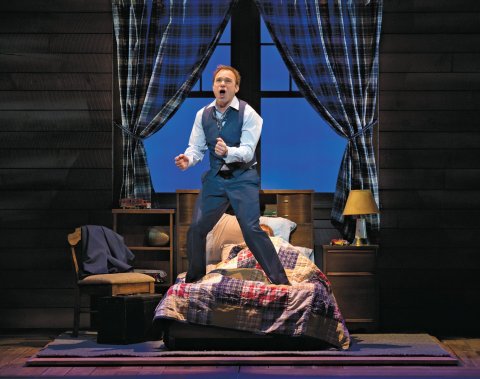
As a way of explaining Edward, the character of Dr. Bennett says, "Sometimes talking is how a man makes sense of the world." Is that how you feel about writing?
It is. A lot of times the work I'm doing on the page is just to organize my thoughts, and if a person is not a writer, talking is how they'll organize their thoughts. That really is Edward Bloom. The way it comes out is as these crazy far-fetched tales, and yet they're not lies. They're ways he's trying to make sense of the world.
You've grown a large community through your blog about screenwriting. How has that affected your process?
It feels like it shouldn't be important, but it is really important to me that there are people out there who want to see what I'm doing next. Even if it's small things, like how I got the box office to give my readers a discount code for tickets for previews. And we're doing a live podcast of Scriptnotes on September 23 here in New York, and working on that has been amazing.
What do you think of all the attention being paid to the Black List, where writers can submit their screenplays in the hopes of getting produced?
I know Franklin Leonard, the founder, and adore him. In its origin the Black List was chosen by the people who were reading all the scripts for their business, the young development execs who were creating a list of what they liked the most within the year. That is in some ways more meaningful than competitions and contests with judges.
What about writers who are considered "hot"?
I think a hot writer is a very small thing to worry about. It really all comes down to what he or she can produce on the page. The script that sort of got me known around town was Go. We got it made, and it was a good experience. The script alone got me started, but that didn't build my career until I had written three other things for different people. I think "hot" is a better term to apply to an actor. Hot for a writer is more like, can that person create a good screenplay that is actually going to create a great movie?
How many other iterations of Big Fish do you envision?
Who knows? Four years from now we may be making a movie version of it again. Part of the reason I'm able to come back to it is because it's a specific but universal story. It can be as relevant 10 or 20 or 30 years from now as it is today.


